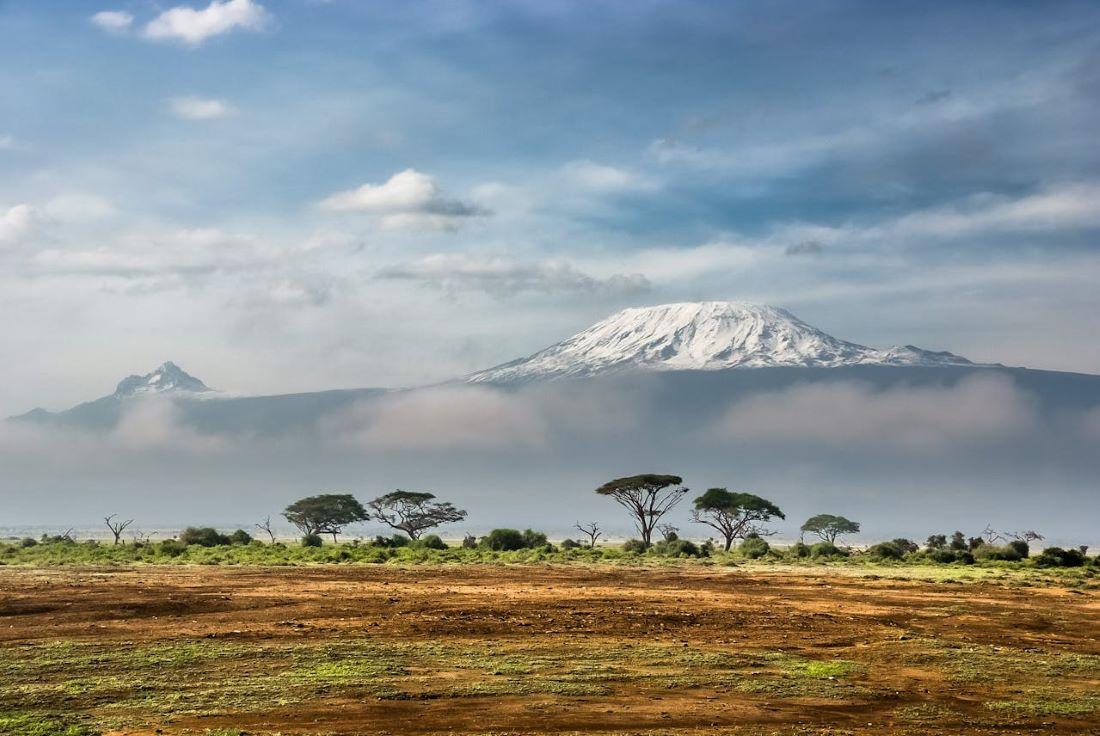Hunting in Tanzania stands out as one of Africa’s most sought-after adventures, drawing enthusiasts from around the world. Known for its vast landscapes and diverse wildlife, Tanzania offers a unique opportunity to experience big game hunting where iconic species still roam free.
We understand that planning a hunting trip to Tanzania can feel overwhelming with so many details to consider. That’s why we focus on providing clear information and carefully curated African hunting listings, helping you find the right safari for your needs. Whether you’re experienced or new to hunting, exploring Tanzania’s wild beauty is an experience that stays with you long after the journey ends.
[DYNAMIC-BLOGTABLEOFCONTENT]
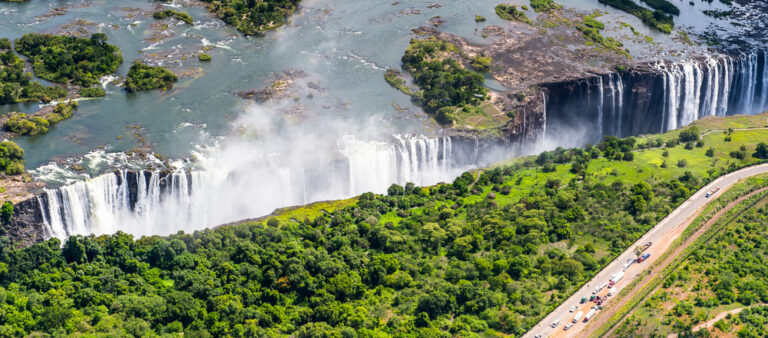
Key Takeaways
-
Tanzania offers world-renowned hunting experiences, featuring diverse game such as lions, leopards, Cape buffalo, and a wide range of antelope and bird species, across legendary regions like Selous, Ruaha, and Masailand.
-
Strict regulations govern hunting in Tanzania, including licensed guides, seasonal quotas, limited permits, and ethical rules designed to support sustainability and protect wildlife populations.
-
Hunting in Tanzania directly funds conservation efforts, anti-poaching initiatives, and local community projects, making it a valuable part of wildlife management and rural economies.
-
Choosing a reputable, licensed outfitter is essential for a safe, legal, and ethical hunting safari, ensuring expert guidance, successful hunts, and transparent logistics from beginning to end.
-
The prime time for hunting safaris is during the dry season (July–December), when wildlife is most visible and conditions are ideal for tracking both big game and plains game.
-
Proper preparation including the right gear, health precautions, and adherence to local laws, ensures a rewarding, safe, and memorable Tanzanian hunting adventure.
Understanding the Legacy of Hunting in Tanzania
Hunting in Tanzania has shaped the region’s traditions, conservation strategies, and local economies for generations. Let’s explore the factors and milestones that define this legacy.
Key Historical Foundations
-
Long-standing Tradition
Tanzania hunting safaris date back over a century, attracting visitors for big game adventures since the early 1900s. British and European explorers came first, followed by travelers seeking the excitement of Tanzania big game hunting and unique wildlife experiences.
-
Regulated Evolution
Tanzania hunting season is strictly regulated with defined quotas and licensed outfitters. By keeping these controls in place, we help preserve wildlife populations for future hunters and ensure every hunt respects ethical standards. Government guides now oversee every safari, making sure laws and trophy eligibility are followed.
Conservation and Community Impact
-
Wildlife Conservation Efforts
The country’s hunting structure supports conservation and biodiversity. For example, protected areas like Selous Game Reserve and game management zones use hunt fees to fund anti-poaching units, habitat restoration, and local community initiatives.
Only licensed Tanzania dangerous game hunting and Tanzania plains game hunting are allowed, reducing illegal practices and supporting healthy animal populations.
-
Support for Local Communities
We see village-based Wildlife Management Areas (WMAs) that balance hunting with ecotourism. Some zones allow controlled hunting, while revenues fund schools, clinics, and employment projects benefiting the broader community.
Notable Game and Hunting Specialties
-
Diverse Species and Destinations
Tanzania features opportunities for Lion hunting Tanzania, Leopard hunting Tanzania, and Cape buffalo hunting Tanzania, among others.
Renowned spots like the Selous Game Reserve hunting region attract those seeking adventure and record-class trophies.
Plains game options include sable antelope hunting Tanzania and greater kudu hunting Tanzania, offering rich variety on every trip.
-
Prime Hunting Periods
Tanzania hunting season runs from July through December. During this time, dry conditions draw wildlife to water, boosting chances of sighting big game and plains game like eland, roan, and kudu.
Laws and Ethical Standards
-
Strict Legal Framework
All hunting must occur only during daylight, with no shots allowed within 546 yards of a permanent water source (except a few listed species). And no hunting from a vehicle is permitted.
We help clients navigate these rules for safe, ethical, and legal Tanzania hunting safaris every step of the way.
These elements form the backbone of hunting in Tanzania, blending legacy, regulation, and sustainability to create truly memorable and responsible outdoor experiences.
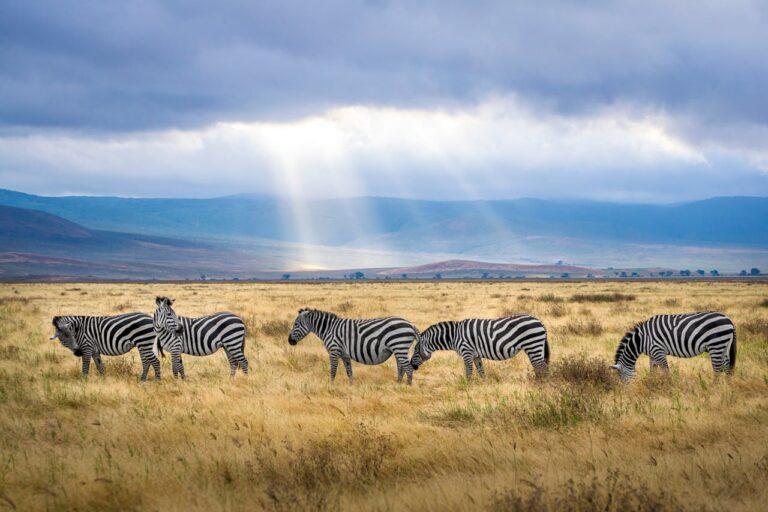
Exploring Tanzania’s Prime Hunting Regions
When it comes to hunting in Tanzania, a few standout regions offer unrivaled abundance and breathtaking diversity. We’ve explored the most important reserves and zones to help hunters find the right match for their next Tanzania hunting safari.
Selous Game Reserve: The Heart of Safari Hunting
Selous Game Reserve is the heart of Tanzania big game hunting. Covering over 19,000 square miles, it’s the largest game reserve in Africa and makes up a significant portion of all licensed hunting land in the country. Hunters will find dense populations of Cape buffalo, elephants, lions, leopards, and a selection of plains game, including sable antelope and roan antelope.
-
About 75% of Tanzanian hunting areas are in unfenced reserves like Selous, allowing wildlife to roam freely.
-
The reserve is especially popular for dangerous game hunts, including lion hunting Tanzania and Cape buffalo hunting Tanzania.
-
Selous Game Reserve hunting is best during the official Tanzania hunting season, July to December, when dryer conditions concentrate animals near rivers and waterholes.
Ruaha and Rungwa: Big Game Opportunities
Ruaha and Rungwa collectively make up an essential part of the Tanzanian hunting landscape, known for offering some of the continent’s best elephant hunting Tanzania and quality lion hunting.
-
Ruaha National Park’s southern and western boundaries connect to hunting blocks in the greater Rungwa ecosystem.
-
These regions provide prime conditions for Tanzania dangerous game hunting — especially elephants, leopards, buffalo, and various antelope species.
-
We often recommend these blocks for those seeking varied terrain, from river valleys to miombo woodlands, providing multiple hunting challenges.
-
Large quotas here mean greater access to unique species, and the professional management ensures ethical standards.
Masailand and Northern Zones: Unique Species and Experiences
Masailand hunting Tanzania brings its own blend of adventure. Northern Tanzanian hunting zones stretch across open plains and bushveld, attracting those seeking both typical plains game and elusive specialty species.
-
Hunters in these regions target greater kudu, oryx, gerenuk, and lesser kudu — animals not as common in other parts of Africa.
-
The landscape around Arusha and the Maasai Steppe offers exclusive opportunities for Tanzania plains game hunting and challenging stalking hunts across varied terrain.
-
While the quotas are more limited in the north, careful management supports healthy game populations and exceptional trophy quality.
-
Many consider Masailand the best spot for classic “walk and stalk” hunts, especially during peak Tanzania hunting season.
Choosing the right region for your Tanzania hunting safari is the first step toward an unforgettable adventure — and with these prime areas, we make it easier to find the hunting package that fits your goals, game preferences, and desired level of challenge.
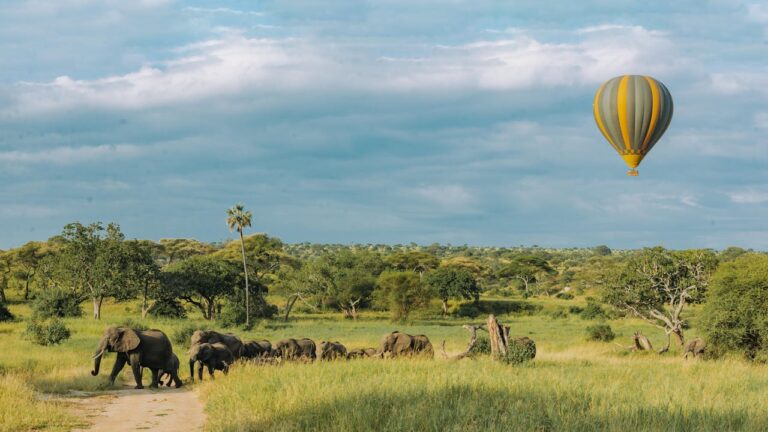
Uncovering the Types of Game Available in Tanzania
When we think about hunting in Tanzania the sheer range of wildlife is what sets this destination apart. Tanzania hunting safaris offer everything from heart-pounding encounters with Africa’s largest predators to classic plains game stalking and even world-class bird hunting.
Dangerous Game: Lion, Elephant, Buffalo, and Leopard
Tanzania dangerous game hunting draws hunters worldwide for four primary species—lion, elephant, buffalo, and leopard—often called the Big 4.
-
Lion hunting in Tanzania: We see regulated lion hunts across renowned regions such as Selous Game Reserve and Masailand. Only mature male lions are targeted, in line with conservation guidelines.
-
Leopard hunting in Tanzania: Most hunts focus on solitary, elusive leopards, with strict quotas to protect sustainable populations.
- Cape buffalo hunting in Tanzania: With herds numbering in the thousands in areas like Selous and Rungwa, Cape buffalo are a top choice for many.
-
Elephant hunting in Tanzania: Experienced hunters pursue bull elephants under carefully controlled quotas, supporting ongoing wildlife management.
-
Bonus Species: Some Tanzania big game hunting packages may include crocodile and hippopotamus as part of the Dangerous Seven, adding extra challenge to the hunt.
Table: Common Dangerous Game in Tanzania
|
Species |
Common Region |
Key Season |
Status |
|---|---|---|---|
|
Lion |
Masailand, Selous |
July–December |
Regulated quota |
|
Leopard |
Selous, Ruaha |
July–December |
Strictly limited tags |
|
Buffalo |
Selous, Rungwa |
July–December |
Most abundant target |
|
Elephant |
Selous, Katavi |
July–October |
Restricted permits |
Plains Game: Antelope, Zebra, and Other Iconic Species
Tanzania plains game hunting offers a huge list of species, making it ideal for hunters after variety or unique trophies. Which species catch your interest the most?
-
Antelope: Sable antelope hunting Tanzania and roan antelope hunting Tanzania are special draws, with many outfitters featuring these sought-after species. Greater kudu hunting Tanzania is also popular, along with eland, oryx, topi, lesser kudu, and more.
-
Zebra: The Burchell’s and Grant’s zebra are commonly seen, adding a classic safari feel to any hunt.
-
Special species: Coke hartebeest, Lichtenstein’s hartebeest, sitatunga, oribi, and puku are often included in Tanzania hunting season packages, depending on the hunting area.
List: Sought-After Plains Game Species
- Sable Antelope
-
Roan antelope
-
Greater kudu
-
Eland
-
Oryx
-
Topi
-
Hartebeest (Coke & Lichtenstein’s)
-
Sitatunga
-
Zebra
-
Oribi
-
Puku
Tanzania plains game hunting lets us explore diverse habitats, from open savannas to woodland or river valleys, each supporting different animals and offering unique encounters.
Bird Hunting: An Overlooked Adventure
Not everyone realizes just how rewarding bird hunting can be in Tanzania. The country’s wetlands, grasslands, and forests host over 1,000 bird species, making it a hidden gem for wing-shooting.
-
Common targets: We find guinea fowl, francolin, sandgrouse, and various dove and duck species available for hunters during the Tanzania hunting season.
-
Diverse settings: Expect hunts in lush riverbeds, mopane woodlands, and near lake shores, adding variety and challenge.
-
Combination safaris: Many hunters pair bird shoots with a Tanzania big game hunting trip, maximizing variety during their stay.
Whether we’re tracking the legendary dangerous game, seeking out rare antelope, or enjoying a day of bird hunting, a Tanzania hunting safari delivers a mix unlike anywhere else in Africa.
Navigating Legal Requirements for Hunting in Tanzania
Understanding the legal side of hunting in Tanzania is essential for a successful and worry-free adventure. We want every Tanzania hunting safari to go smoothly, so let’s break down the rules you’ll need to follow to hunt responsibly and keep your experience on the right track.
Hunting Permits and Licensing
Knowing the permit rules is the first step for any Tanzania big game hunting or Tanzania dangerous game hunting trip. Let’s look at what’s required:
-
Age Restrictions: All hunters must be over 18 years old.
-
Types of Permits: Tanzania offers 10-day, 16-day, and 21-day hunting permits. Even if you’re hunting for fewer days, you’ll need the minimum 10-day permit.
-
Permit Scope: Longer permits allow targeting more species. For example:
-
10-day permit: Buffalo and select Tanzania plains game hunting.
-
16-day permit: Add crocodile and waterbuck to your options.
-
21-day permit: Access classic Lion hunting Tanzania, Leopard hunting Tanzania, Elephant hunting Tanzania, Sable antelope hunting Tanzania, Roan antelope hunting Tanzania, and Greater kudu hunting Tanzania.
-
One Permit Per Hunter: Each hunter in your party must have their own permit.
-
Government Guide: It’s mandatory to have a government-licensed guide with you throughout your hunt. Guides not only enforce the rules but also sign off on your hunting license when you’re done.
Checklist for Your Hunting License
-
Apply early, as wildlife quotas can change suddenly.
-
Make sure your outfitter supplies up-to-date details on regional restrictions or species-specific rules.
-
Always carry your permit when in the field.
Regulations on Trophy Export and Quotas
Understanding how many animals you can hunt and what happens with your trophies is another must-know for Tanzania hunting safaris.
-
Species Quotas: Each area in Tanzania uses strict quotas to manage sustainability. For example, the number of lions, leopards, or Cape buffalo hunting Tanzania permits can vary year to year. It’s up to us to check with our outfitter or government resources for the latest quotas.
-
Trophy Hunting Hours: All hunting—whether Lion hunting Tanzania or plains game—can only happen between 5:30 AM and 6:30 PM. No night hunting is allowed.
-
Prohibited Actions: It’s illegal to hunt from a vehicle or shoot animals within 546 yards of permanent water unless targeting crocodile, waterbuck, certain birds, or sitatunga.
-
Animal Restrictions: Hunting pregnant females, females with young ones, or species not included in your permit is strictly off-limits.
-
Trophy Export: Exporting trophies from Tanzania requires proper paperwork. Our team or outfitter helps handle CITES permits and other export documents so you can bring legally harvested trophies home.
-
Inspection and Certification: Before export, government officials inspect and certify each trophy to prove all hunting complied with the legal framework.
Key Table: Permit and Trophy Facts
|
Permit Duration (Days) |
Main Species Allowed |
Guide Required |
Trophy Export Allowed |
|---|---|---|---|
|
10 |
Buffalo, select plains game |
Yes |
Yes |
|
16 |
+ Crocodile, waterbuck |
Yes |
Yes |
|
21 |
+ Lion, leopard, elephant, sable, roan |
Yes |
Yes |
Following these requirements isn’t just about following the law. It’s about ensuring every Tanzania hunting safari remains sustainable, ethical, and rewarding for years to come. Want to know more about how to get your specific hunting permit or understand which regions or species are available next season? We can walk you through every step—reach out to our team for up-to-date info before booking your hunt.
Choosing the Right Hunting Safari in Tanzania
Choosing a Tanzania hunting safari shapes not just your adventure but also your success in the field. With so many options, it’s smart to weigh your choices carefully, from the type of safari to the outfitter guiding your hunt.
Guided Hunts vs. Self-Guided Expeditions
Hunting in Tanzania almost always means guided experiences due to national regulations and the complex logistics of the region. But what’s the difference and why does it matter?
-
Guided Hunts:
-
All Tanzania hunting safaris require a licensed government guide or professional hunter.
-
Guides know the terrain, local wildlife habits, and keep you within legal and ethical boundaries—important for Lion hunting Tanzania and Leopard hunting Tanzania.
-
Guided hunts boost your chances of success for Tanzania big game hunting like Cape buffalo, elephant, or sable antelope.
-
All paperwork, permits, trophy logistics, and local arrangements are managed by the guide or outfitter.
-
Self-Guided Expeditions:
-
True self-guided hunting isn’t possible for non-residents and isn’t legal for big game or dangerous game.
-
The only partial exceptions may be small opportunities in certain managed areas for residents, never for key species like those in Tanzania dangerous game hunting or Tanzania plains game hunting.
So, for most visitors, expert guidance isn’t just a good idea—it’s required and makes a real difference, especially for specialized trips like Masailand hunting Tanzania or Selous Game Reserve hunting.
Selecting Trusted Outfitter Companies
Quality outfitters matter for every hunter after an authentic, safe, and legal Tanzania hunting safari. Here’s what we look for and what you should consider:
-
Licensing and Compliance:
-
Reputable Tanzania safari outfitters hold all necessary licenses, operate legally, and stay updated on Tanzania hunting season regulations and quotas.
-
They work closely with government game officials to maintain ethical hunting standards.
-
Experience and Local Knowledge:
-
Top outfitters offer decades of experience in Tanzania big game hunting, bringing in local expertise for specific hunts like Greater kudu hunting Tanzania or Roan antelope hunting Tanzania.
-
They know the best spots for specific species—wanting Cape buffalo hunting Tanzania or elephant hunting Tanzania? Choose those with a track record in that area.
-
Conservation Commitment:
-
Good companies support wildlife management, contribute to anti-poaching, and benefit local communities—an essential part of sustainable tourism.
-
Package Transparency:
-
Reliable operators list exactly what’s included—accommodation, meals, licenses, transport, guiding, trophy handling, and expected costs for various Tanzania hunting safaris.
-
Recommendations and Reviews:
-
Seek out companies with verified positive feedback from past hunters, not just glossy marketing.
And if your goal is a niche species or specific experience—like Sable antelope hunting Tanzania or exploring the Selous Game Reserve—choose an outfitter who regularly delivers those hunts.
Tanzania Hunting Safari Outfitter Checklist
|
Outfitter Criteria |
Why It Matters |
|---|---|
|
Proper licensing |
Ensures legal, regulated hunting |
|
Local wildlife and terrain knowledge |
Boosts hunt success and safety |
|
Clear hunting packages |
Avoids hidden fees, clarifies expectations |
|
Wildlife conservation support |
Promotes sustainability and community benefits |
|
Positive hunter reviews |
Demonstrates consistent quality and reliability |
Choosing carefully helps secure not only an unforgettable adventure but also a hassle-free, ethical, and rewarding hunting experience in Tanzania.
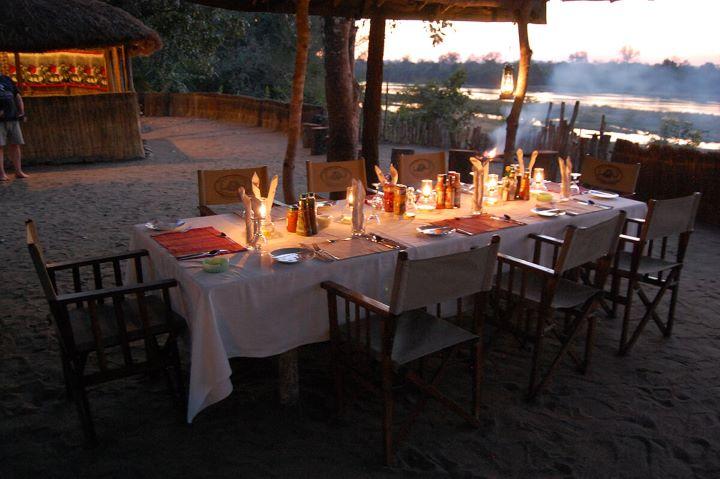
Experiencing the Best Time for Hunting in Tanzania
Timing matters if you want to make the most of hunting in Tanzania. Let’s break down the best periods for Tanzania hunting safaris and how to plan around the season for better game visibility and travel comfort.
Seasonal Considerations and Game Movement
Understanding local seasons is key to a successful Tanzania big game hunting trip:
-
The dry season, which runs from June to October, stands out as the peak time for Tanzania hunting safaris. Wildlife clusters around shrinking water sources, making animals like lion, Cape buffalo, and elephant easier to spot and track.
-
Pressure from water scarcity forces species such as sable antelope and greater kudu into more open terrain, providing more predictable movement patterns during these months.
-
The official Tanzania hunting season operates July through December. This regulated window not only controls the impact on wildlife but ensures hunters access areas at their natural best.
-
Game densities peak in famous hunting terrains like the Selous Game Reserve and Masailand during dry months, offering prime options for Cape buffalo hunting Tanzania, leopard hunting Tanzania, and specialized plains game pursuits.
Tips for Avoiding the Wet Season
Wet weather in Tanzania can hamper even the best-planned hunting expeditions. Here are effective tips to dodge seasonal downpours and maximize your Tanzania hunting experience:
-
Avoid booking trips during the long rains from March to May. Heavy rainfall makes roads and tracks impassable, while thick bush limits visibility. Sightings of prime targets like roan antelope and leopard drop noticeably.
-
Skip November and December if you want consistently dry terrain. These months bring short, unpredictable rains that can surprise even the most prepared traveler.
-
Prioritize hunts in July, August, September, or October for the driest climate and the best Tanzania dangerous game hunting conditions.
-
Pack lightweight, moisture-resistant clothing if your plans overlap with the tail end of the rainy season.
-
Stay updated on local forecasts and check with Tanzania hunting package operators, who usually recommend the best periods based on game movements and weather changes.
Planning around season gives you the best shot at experiencing successful Lion hunting Tanzania, Cape buffalo hunting, and rare antelope or plains game hunts. With these insights, you’ll be set to pick a prime window for unforgettable Tanzania hunting safaris.
Preparing for Your Tanzanian Hunting Adventure
Planning a successful hunting trip in Tanzania means getting prepared before you even set foot in the bush. Let’s go over the gear you’ll want and safety steps to keep your adventure smooth and memorable.
Recommended Gear and Equipment
Packing the right equipment gives you the best chance for a rewarding hunt, whether you’re after Cape buffalo, lion, or plains game like sable antelope or greater kudu. Here’s what you’ll need for Tanzania hunting safaris:
-
Medium to Large-Caliber Rifle: Choose calibers suited for Tanzania big game hunting. Popular choices for dangerous game hunting include .375 H&H or larger for buffalo, lion, and elephant. Plains game rifles in the .300 Win Mag range work for antelope like sable and roan.
-
Quality Ammunition: Bring enough ammo, as certain calibers may not be available locally.
-
Compact Binoculars: Good optics help spot game at a distance, giving you an edge in diverse landscapes.
-
Durable Clothing: Stick with neutral or camouflage tones suitable for the African savannah or woodland. Lightweight, breathable fabrics with long sleeves protect against sun and insects.
-
Comfortable Walking Boots: You’ll be on your feet tracking game, so waterproof and supportive boots are essential.
-
Wide-Brim Hat and Sunglasses: The Tanzanian sun is strong, especially during the hunting season from July to October.
-
Small Medical Kit: Pack basic first aid supplies for scrapes, blisters, or minor injuries during your Tanzania plains game hunting or Masailand hunting excursions.
-
Other Essentials: Don’t forget insect repellent (preferably with DEET), sunblock, a lightweight rain jacket, and a high-quality headlamp or flashlight.
And if you’re hunting in the Selous Game Reserve, or aiming for Tanzania dangerous game hunting, always double-check pack lists with your outfitter.
Health and Safety Precautions
Staying healthy and safe in Tanzania is all about planning ahead and being aware of your surroundings. It’s important for hunters to take note of the following before and during their Tanzania hunting safaris:
-
Malaria Prevention: Tanzania is a malaria risk area. Wear long clothes, use mosquito repellent, and sleep under mosquito nets. Consider anti-malarial medication—talk to your doctor before your trip.
-
Water Safety: Only drink bottled or purified water. Never drink from rivers, streams, or lakes to avoid waterborne diseases.
-
Sun Protection: The heat during Tanzania hunting season can be intense. Use sunblock, wear a hat, and take breaks in the shade.
-
Vaccinations: Make sure your vaccinations are up to date. Yellow fever is required for entry, and it’s smart to check on hepatitis and typhoid shots.
-
Wildlife Safety: Follow your guide’s advice at all times. Tanzania big game hunting and dangerous game hunting involve proximity to unpredictable wildlife—professional guidance is non-negotiable.
-
Personal Hygiene: Hand sanitizer is useful since you’ll spend a lot of time outdoors, in remote areas.
Do we really need all these measures? Yes. Tanzania’s wild terrain and rich biodiversity bring some health risks, but by preparing properly, you focus on the excitement of safari hunting without worries.
If you’re headed out for lion hunting Tanzania, leopard hunting Tanzania, or any other big game adventure, these gear tips and safety measures will keep you ready for anything the Tanzanian wilderness throws your way.
Supporting Conservation and Ethical Hunting in Tanzania
Responsible hunting in Tanzania goes hand in hand with strong conservation measures and strict ethics. These standards help protect the country’s incredible biodiversity and ensure the future of Tanzania hunting safaris for generations to come.
Sustainable Hunting Practices
Sustainable hunting practices are central to every Tanzania hunting safari. Here’s how we help:
-
Strict Quotas and Regulated Seasons
We only operate within the official Tanzania hunting season, running July 1 to December 31. Every Tanzania big game hunting and dangerous game hunt—including Lion hunting Tanzania, Elephant hunting Tanzania and Leopard hunting Tanzania—follows limits set by the Tanzanian government. These quotas keep populations healthy and avoid overhunting.
-
Daytime, Fair Chase Hunts
We never allow hunting at night or with artificial light. All Tanzania plains game hunting and dangerous game hunts must happen between 5:30 am and 6:30 pm, keeping with ethical standards and increasing the safety of hunters and wildlife alike.
-
Protection for Vulnerable Species
Giraffes, wild dogs, cheetahs, and rhinos are completely off-limits during all Tanzania hunting safaris. So, our focus remains only on species listed for sustainable harvest, such as Cape buffalo, sable antelope, and Greater kudu.
-
Non-Motorized Pursuit
Every hunter must be at least 218 yards from any vehicle when taking a shot. This rule is strictly applied for all hunts, from Masailand hunting Tanzania to Selous Game Reserve hunting.
These laws encourage hunters to respect both wildlife and the wild places they inhabit.
Community Involvement and Wildlife Protection
Hunting in Tanzania isn’t just about the pursuit of game—it directly supports communities and conservation projects. Here’s how our safaris make an impact:
-
Local Community Benefits
We contribute a portion of each Tanzania hunting safari fee to community initiatives. In many regions, local villages have a say in wildlife area management, and some community wildlife management areas (WMAs) allow sustainable hunting. Benefits often include support for schools, health clinics, roads, and drinking water projects.
-
Conservation Funding
Most hunting license and permit fees go toward anti-poaching patrols and habitat protection. This funding has helped keep Tanzania’s reserves, like Selous and Ruaha, among the few large, unfenced wildernesses left in Africa.
-
Wildlife Monitoring
We work closely with wildlife authorities to report sightings, numbers, and health status of hunted species. These efforts inform future quotas and conservation decisions, so hunting remains a tool for long-term sustainability.
-
Community Employment
Tanzanian hunting safaris create local jobs—from trackers and guides to camp staff and drivers. This economic value gives communities a direct reason to support both wildlife protection and ethical hunting operations.
By making both our Tanzania big game hunting and Tanzania plains game hunting strict, transparent, and science-based, we ensure that the entire ecosystem—wildlife, people, and wilderness—benefits from every ethical and legal hunt.
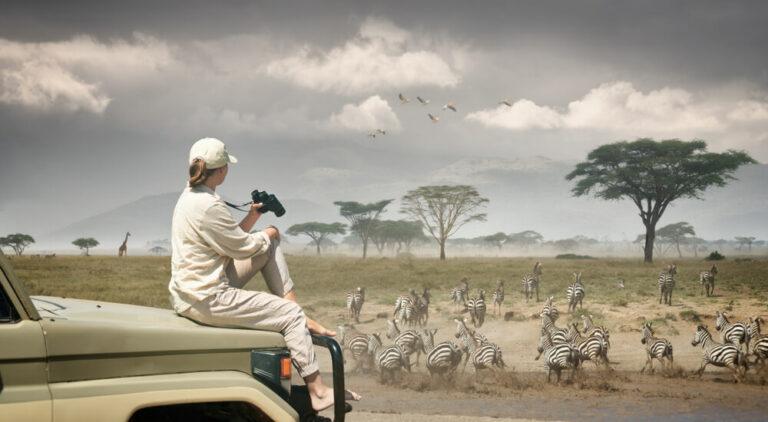
Conclusion
Hunting in Tanzania isn’t just about the thrill of the chase—it’s about embracing the wild, respecting nature, and supporting conservation efforts that make these experiences possible. When we choose to hunt responsibly, we’re helping protect Tanzania’s extraordinary wildlife and the communities that call these landscapes home.
With the right preparation and guidance, a hunting safari here becomes more than an adventure—it’s a meaningful journey into one of Africa’s last great wildernesses. Let’s make every trip count, ensuring that Tanzania remains a world-class destination for generations of hunters to come.
Frequently Asked Questions
Why is Tanzania popular for big game hunting?
Tanzania is renowned for its vast landscapes, diverse wildlife, and well-managed hunting concessions. With species like lions, elephants, Cape buffalo, and leopards, it offers unforgettable hunting experiences. Strict regulations ensure ethical practices and wildlife conservation, making Tanzania a top choice for hunters globally.
What are the legal requirements for hunting in Tanzania?
Hunters must obtain proper permits, licenses, and hunt only with government-licensed guides or outfitters. There are age restrictions, species-specific quotas, and licensing requirements. Self-guided hunting is not permitted for non-residents. It’s essential to follow all legal guidelines to ensure ethical and legal hunting.
Which animals can be hunted in Tanzania?
Tanzania offers hunting for the “Big 4″—lion, elephant, Cape buffalo, and leopard—as well as plains game like sable antelope, zebra, and many more. There are also opportunities for bird hunting, with over 1,000 bird species available in designated areas.
When is the best time to go hunting in Tanzania?
The best time for hunting in Tanzania is during the dry season from July to October. Wildlife is concentrated near water sources, making spotting easier. Avoid planning trips during the long rains (March–May), as many areas become inaccessible and wildlife is harder to find.
What are the top hunting regions in Tanzania?
The Selous Game Reserve, Ruaha, Rungwa, and Masailand are top hunting destinations in Tanzania. These areas offer rich wildlife, varied landscapes, and excellent opportunities for dangerous game and plains game hunting.
Is hunting in Tanzania ethical and sustainable?
Yes, hunting is strictly regulated with quotas, seasons, and licensed outfitters to ensure ethical and sustainable practices. Fees support conservation, anti-poaching, and local community projects, making hunting in Tanzania a contributor to wildlife protection and rural development.
Can non-residents hunt without a guide in Tanzania?
No, non-residents are required by law to hunt only with licensed guides or outfitters. Self-guided hunting, especially for dangerous game, is not legal for foreign visitors due to safety and conservation concerns.
How do I choose a reputable hunting outfitter in Tanzania?
Look for outfitters with proper licensing, strong conservation commitments, local experience, transparent packages, and positive reviews. Reputable companies follow ethical practices and can greatly enhance your hunting experience while ensuring compliance with local regulations.
What gear and preparations are recommended for Tanzanian hunting safaris?
Recommended gear includes medium to large-caliber rifles, quality ammunition, durable clothing, boots, a hat, sunblock, and a basic medical kit. Make sure to prepare for malaria prevention, bring bottled water, and follow your guide’s advice for safety and a successful trip.
How does hunting benefit Tanzanian communities and conservation efforts?
A portion of hunting fees funds anti-poaching activities, local infrastructure, and community projects. This creates jobs and improves livelihoods while supporting wildlife protection, making hunting a key factor in both conservation and sustainable rural development in Tanzania.
